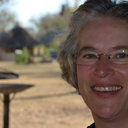A one year prospective study of neurogenic stuttering following stroke: incidence and co-occurring disorders.
Palavras-chave
Resumo
In this prospective study, data on incidence, stuttering characteristics, co-occurring speech disorders, and recovery of neurogenic stuttering in a large sample of stroke participants were assessed. Following stroke onset, 17 of 319 participants (5.3%; 95% CI, 3.2-8.3) met the criteria for neurogenic stuttering. Stuttering persisted in at least 2.5% (95% CI, 1.1-4.7) for more than six months following the stroke. Participants with comorbid aphasia presented with a significantly higher frequency of stuttering compared to the group without aphasia (U=13.00, p((1-tailed))=.02) but no difference was found for participants with co-occurring dysarthria and/or cognitive problems. Participants with neurogenic stuttering did not differ from those without stuttering in terms of stroke risk factors or stroke etiologic subtypes. Although the incidence of stuttering following stroke is lower than that for aphasia or dysarthria, these results show that clinicians should take neurogenic stuttering into account when assessing stroke participants' speech and language.
OBJECTIVE
: Readers will be able to: (1) understand the need for systematic, prospective studies in neurogenic stuttering; (2) know the incidence and prevalence of neurogenic stuttering following stroke; and (3) know how neurogenic stuttering co-occurs with other speech-language disorders following stroke.


